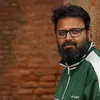Write what you believe in and believe in what you write, says screenwriter Bhavani Iyer
Bhavani Iyer has no formal training in screenwriting, but has scripted Bollywood biggies like Black, Lootera, and Raazi. Presently working on the upcoming Sam Manekshaw biopic, she tells Weekender about her longstanding affair with words.
Bhavani Iyer loves words. And she wields them really well.
The girl who started her career as a trainee copywriter with a leading ad agency soon moved to journalism, working for film magazine Stardust. An interview with filmmaker Anurag Kashyap led her to rethink her career path. Anurag asked her to join him for a screening, and chanced upon her scribbling in a notepad as she was the first person to reach the venue. “He asked what I was writing and if he could read it,” she says.
A week later, Anurag Kashyap made a call that changed Bhavani’s life. He told her that she should quit her job and start writing for films, connecting her to then aspiring director Vikramaditya Motwane. And there was no looking back.
Bhavani made her screenwriting debut with Sanjay Leela Bhansali's Black, and went on to collaborate on the screenplays for Bhansali's Guzaarish, Motwane's Lootera, and the Indian version of Fox's hit show 24. She was also the writer behind the lauded spy drama Raazi. She has also written a novel, Anon, the tale of two friends and their intersecting lives.
In an interview with YourStory Weekender, Bhavani Iyer speaks about her childhood, her educational background, her decision to switch from copywriting to journalism to screenwriting, and what drives her storytelling.
YourStory Weekender (YSW): Tell us about your life as a child and your growing-up years.
Bhavani Iyer (BI): My childhood was a very gentle one, cradled in the world of books, imagination and stories. My father was an avid reader and I learnt by example, watching him always with a book in hand. He introduced me to the world of books and I was pretty soon reading material much ahead of my years. I was extremely shy and wasn’t comfortable around too many people; I would be happiest when buried in a book.
My growing-up years were spent in Bangalore where my brothers and I immersed ourselves in simple, fun pursuits, far removed from movies or even television.
I remember we would always rather be camping in the lawn, reading, or playing chess and checkers than watching television when home. We would barely watch one movie a year, if that.
Looking back, I realise that while the idyllic and idealistic world that our parents brought us up in was a blessing, it left me and my brothers rather unprepared and under-equipped to deal with the hustle and wiliness around us when we grew up. It remains so even today, many of my reactions to things around are tinged with shocking naivete and a lack of worldliness.
But I wouldn’t have it any other way because I don’t think I would be the writer I am, and bring the perspective I do if I didn’t have the grounding my father gave me, and the intense originality that my mother encouraged.
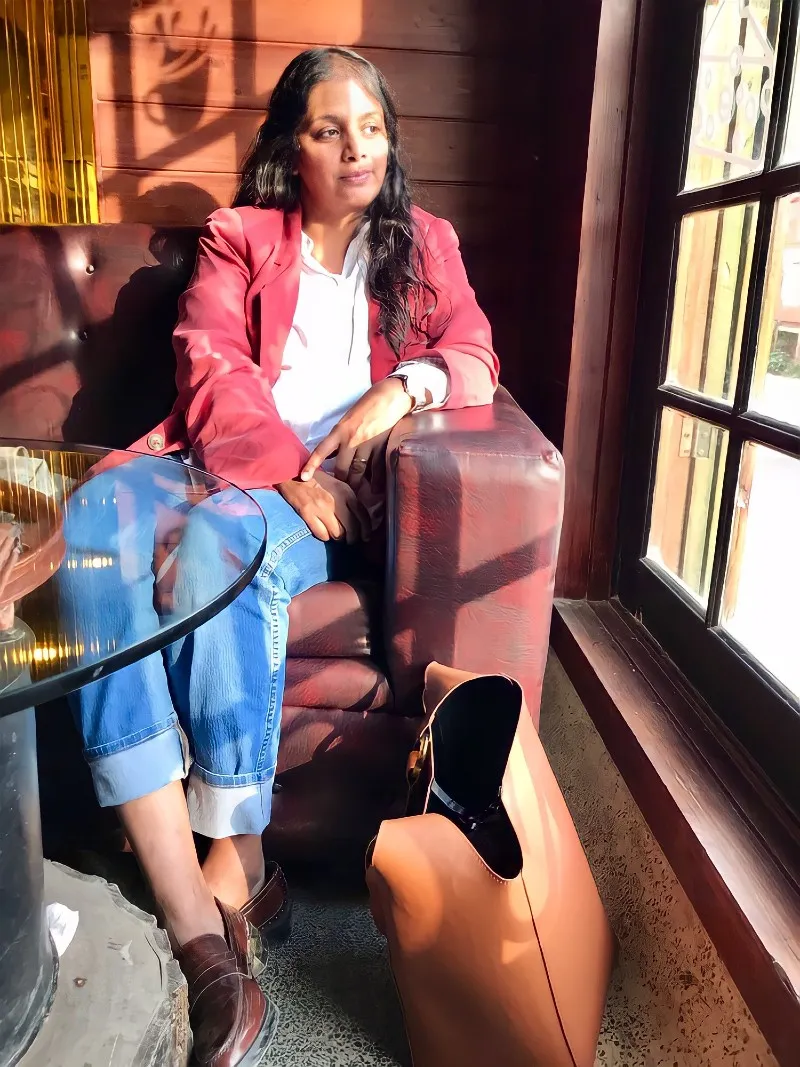
Bhavani Iyer says her personal journeys and experiences, whether emotional or ideological, find expression in her characters and writing.
YSW: What was your educational background like?
BI: I was always very driven by a need to excel, to be the best I could, to stand out as special. I was a good student, and scored well in academics, and therefore believed that I should follow a more cerebral path to my career. I graduated in science and wanted to pursue genetic engineering for my master’s.
However, I have always been writing from the time I was seven years old. My father guided me towards expressing myself in words, beginning with little notes about my day, then moving on to stories that got more structured and directional as I grew older.
Dad would guide me towards reading history and incorporating that history into my stories. He would ask me to tell the same story from varied points of view, suggesting at times that I have only one character in the story and so on.
So, while my academic education was on, I was actually learning the craft of storytelling in the most natural and immersive way.
YSW: When did you realise that your love for words transcended everything else?
BI: There was never really a moment of realisation, as such. It was like being in love. You always know, deep within, that this is where you’re meant to be. I was happiest with words, I loved language, I could express myself best in writing.
So even while I explored other worlds through my academics, deep within I think I always knew I would home back to my first love – writing. It also reflected in the choices I made while I was pursuing my formal education.
While in college, my first job was with an advertising agency as a trainee copywriter. I worked on PSAs that actually won a few awards. As soon as I graduated, I landed a job with a film magazine as sub-editor, which sounded pretty important to me at the time, but I soon realised it was just a fancy way of saying I corrected copy! But through it all, my storytelling kept going and my journal with my writing kept getting thicker and denser.
YSW: When did storytelling become a part of your life?
BI: It was always a part of my life, right from childhood. I would love creating stories in my head about anything and everything. Whenever someone new would come home, I would lend them a story, a background, and a world that was pretty intense and dramatic.
Oftentimes, I didn’t want to know their reality because my stories would be far more theatrical and larger-than-life, and therefore engaging to the child that I was.
While I was working with Stardust, I met a lot of people in the world of cinema who worked behind the scenes – art directors, editors, cinematographers, and writers. I realised that this is where I was meant to be.
Although I never really remember the moment when I thought I would like to write for films, I just knew this is where I would be happiest. Screenwriting is the best blend of telling your stories through words with the strength of visuals, and there isn’t anything else I would rather be doing.
YSW: Tell us about your filmography.
BI: I love telling stories of people who are broken and fragmented, and seem to reside in worlds far removed from the physical and sociological landscape I inhabit. My personal journeys and experiences, whether emotional or ideological, always find expression in my characters and my writing.
I think I try to understand or deconstruct many of my complexes or flaws or shortcomings through my characters who seem to have similar failings. I wish I could say that I chose to tell these stories that I have, but the truth is that it is the stories that choose us and not the other way around.
I am not a trained writer, I haven’t studied screenwriting. But I don’t think it ever mattered to me, or bothered me. I met Sanjay Bhansali when I was very young, and wrote Black when I was in my early twenties.
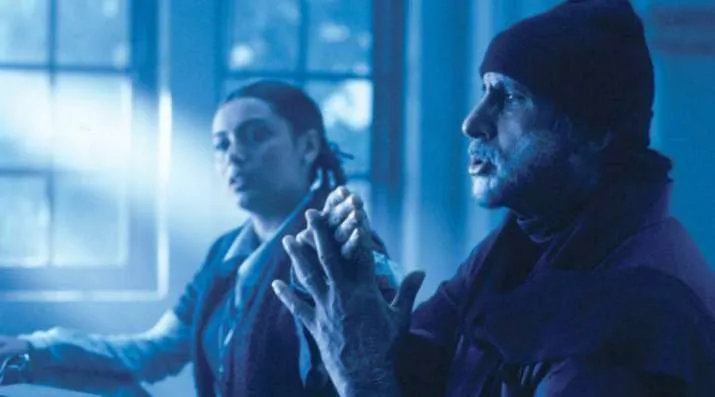
Starring Rani Mukherjee and Amitabh Bachchan, Sanjay Leele Bhansali's Black won massive critical acclaim.
Lootera was called The Last Leaf and I had written it just after I wrote Black, although it released nine years later. I then wrote Swami, Guzaarish, 24 India, Everest, and a couple of other television shows before I wrote Raazi, which released in 2018. Following that, I wrote the shows Kaafir and Breathe: Into the Shadows, which released in 2020.
I would like to think that I invested every ounce of my honesty in these and allowed the story to tell itself in the best way it could. As I look back, I also realise that my approach to all of these has been very different.
I let the subject that I am writing dictate and lead me into it. At times, it is the character that I find immediate empathy and clarity with, so I let the character hold my hand through the process. In some other stories, it is the world that I hope to set the story in that I explore, and that world then throws up ideas about what can happen in it and who can inhabit it.
Sometimes it is a defining incident or moment that forms the pivot, sometimes an article in a newspaper can set fire to the mind.
I think it is safe to say that I have never had a similar approach to any two pieces of writing. All the stories I’ve written are my beloved snowflakes, each utterly individual and unique.
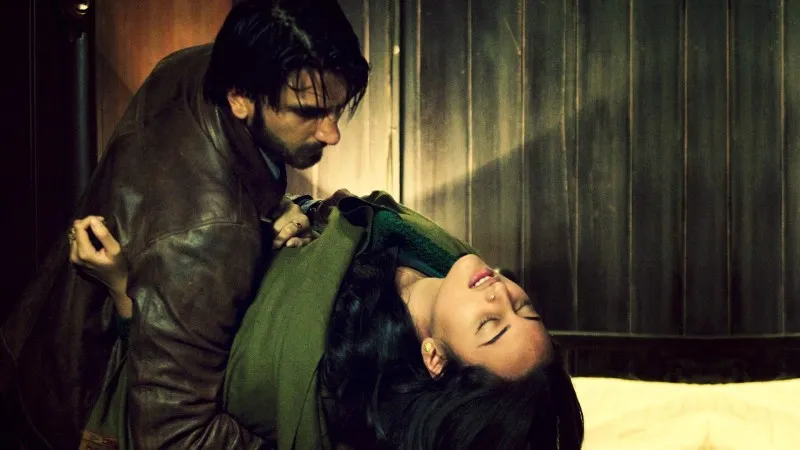
Bhavani Iyer says she often finds immediate empathy and clarity with a few characters, and lets them hold her hand through the writing process. Still from Lootera
YSW: Do you see a difference between writing for the big screen and small screen?
BI: While the idea is always to tell a beautiful story and tell it well, the craft of screenwriting for cinema and for television/ web platforms are different. It is just simple math: you have two hours to tell a story in one medium and between eight and 10 hours in the other. Your narrative structure needs to be individually crafted for each, and very differently too.
Long-format storytelling has its own challenges, but it is something I enjoy immensely. I am a maximalist when it comes to writing; the more I can say, the better!
YSW: What are you working on presently?
BI: There are several movies and shows that I am working on presently. However, the two that have been announced are the film Sam Bahadur with Meghna Gulzar and Gayatri Devi, a web series on the life of the legendary Maharani of Jaipur.
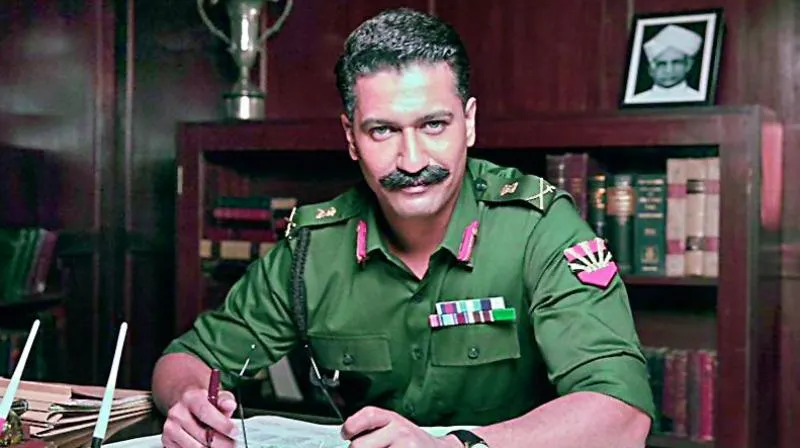
Vicky Kaushal in and as Sam Bahadur.
YSW: How is the film on Sam Manekshaw coming along? When is it scheduled for release?
BI: Field Marshal Sam Manekshaw is one of the most fascinating and remarkable men I have ever read about. He is a ‘hero’ in the truest, most Bollywood sense of the word, and yet there are so many facets to him that go beyond his magnetic charm, charisma, and military intellect.
The wonderful thing about writing a biopic though is that you need to get over your awe and veneration for your character and see and present him/her as a human being, flaws and all.
I am deeply aware of the responsibility of doing justice to his iconic stature and yet preserving his vulnerability and dimension in the narrative. The current situation with the pandemic has made it pretty tough to say exactly when things will get set in motion, but we should hopefully go on floors pretty soon.
YSW: Tell us about your five favourite new films/shows.
BI: These are:
I May Destroy You (HBO limited series)
When They See Us (Netflix miniseries)
The Great Indian Kitchen (Malayalam movie)
Unforgotten (BBC show)
The Father (American movie)
YSW: Everyone has stories to tell. Do you have any advice for aspiring storytellers?
BI: I feel the only way to do anything is with utter and absolute resonance to your personal truth and beliefs. Write what you believe in and believe in what you write.
Your writing needs to ring with the might of your beliefs; the strands of both need to be inextricably linked.
Never take up any work that fights with your integrity and your sense of right. It might seem like it doesn’t matter initially, but it can erode your faith in the long run.
Most importantly, keep writing and keep seeking your dream.
Edited by Teja Lele




